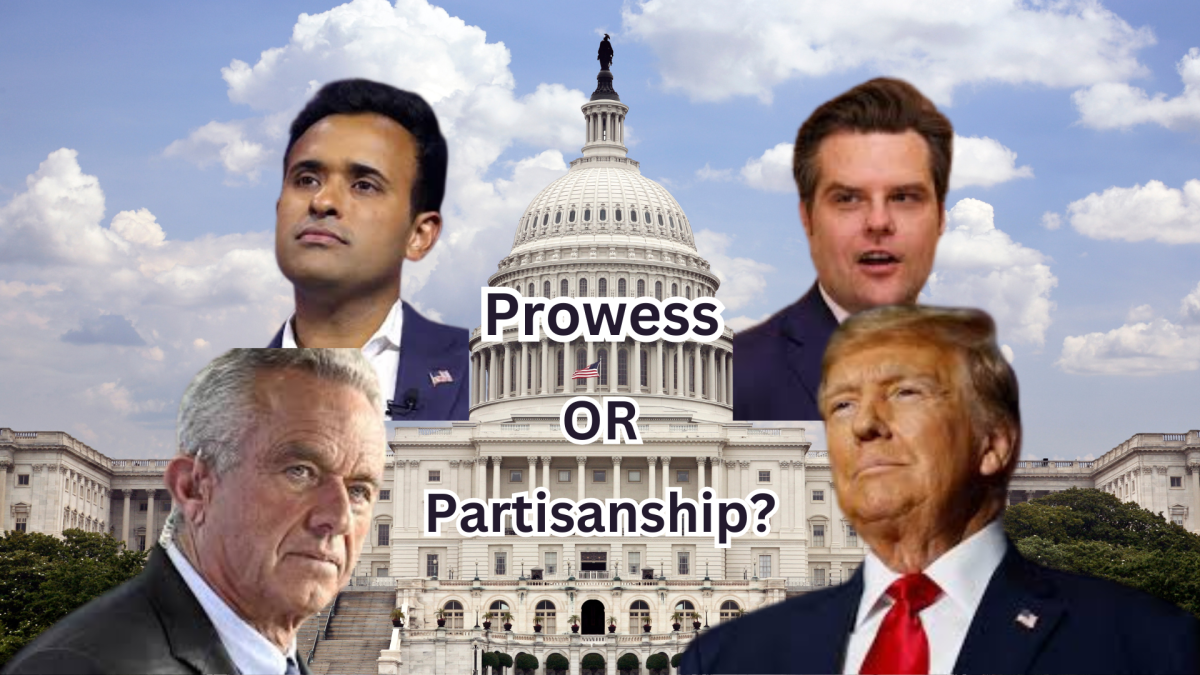Any American will tell you that “qualified” is the most important thing a government official can be; what “qualified” means, however, is a matter of much debate among political affiliations. Therefore, it’s no surprise that as president-elect Donald Trump assembles his administration, the nation is watching closely, scrutinizing the qualifications and ideologies of those chosen to head important departments and sectors. These decisions have raised an important question: has the American government reverted to a spoils system, prioritizing loyalty over expertise and qualifications?
Historically, the spoils system – popularized during Andrew Jackson’s presidency – was a method of rewarding political supporters with government positions, usually at the expense of merit. While civil service reforms in the late 1800s sought to end this practice, Trump’s choices suggest there is a troubling resurgence of political favoritism over the meritocratic principles that the country has long strived to uphold.
A handful of appointees in particular have drawn the most backlash from political opposition in the past weeks, as Trump has begun to form his cabinet for his second term in office. Two such figures are entrepreneur Vivek Ramaswamy, who ran in adamant opposition to Trump in the Republican primaries this election, and Elon Musk, the world’s richest individual as well as founder of billion-dollar companies such as Tesla, SpaceX, and PayPal. The pair were chosen to head the newly created Department of Government Efficiency, an “advisory committee” that Ramaswamy and Musk have promised will cut $2 trillion in federal spending. Many experts have bashed the two men and the department itself, stating that such a large reduction is effectively impossible, as it would require cutting every government program by around a third. This would devastate services that many Americans rely on, such as Medicare and Medicaid, Social Security, food stamps, home heating assistance, infrastructure safety inspections and maintenance, among others. Many are questioning whether or not these two men have enough expertise to head such an extreme undertaking, or if they were chosen simply because they licked Trump’s boots on the campaign trail.
Perhaps the most controversial and consequential appointment by Donald Trump is his new director of the Department of Health and Human Services, Robert F. Kennedy Jr. Kennedy ran against Trump as an independent in this year’s election but dropped out late to voice his support for the eventual president-elect. Kennedy has long been criticized due to his history of advocacy against vaccines and his promotion of debunked claims linking vaccines to autism. He is also insistent that large food and drug companies are the cause of a multitude of diseases and ailments, ranging from ADHD to infertility. He has also recently claimed that he will advise Donald Trump to remove the fluoride used to treat drinking water once he enters office. His stances pose significant concerns about his ability to lead a department responsible for safeguarding public health. His position has drawn harsh denunciation from medical professionals and public health experts, who argue that his views undermine trust in proven science and jeopardize efforts to address public health crises. Similar to Ramaswamy and Musk, many are wondering whether Kennedy’s appointment was a result of Trump believing he was the best candidate for the job, or because Trump knows that he is loyal and influenceable.
This approach of selecting government officials could have profound implications. For one, it risks undermining public trust in government institutions. The American people expect leaders to be chosen for their ability to govern effectively, not because of their allegiance to a president or party. In addition, the highly complex and difficult issues that face modern government are ones that require expertise, not political butt-kissing.
On the other hand, supporters of Donald Trump might argue that these appointments reflect his promise to “drain the swamp” and challenge the political status quo. By favoring those most loyal to him, they argue, Trump is signaling his commitment to an agenda that prioritizes his vision for the country over the established routines of Washington. But even this defense is flawed. The line between “draining the swamp” and installing unqualified followers is a precarious one. When decision-making power rests in the hands of those who lack the experience or skills to wield it responsibly, the consequences are felt by all Americans.
This period in time is pivotal. As Trump finalizes his administration and key agency positions, the nation must ask whether these choices reflect a government of, by, and for the people – or one serving only the interests of a select few. More than ever, it is crucial to uphold the principle that public service is a duty that requires both competence and integrity. The very fabric of American democracy depends on it.


